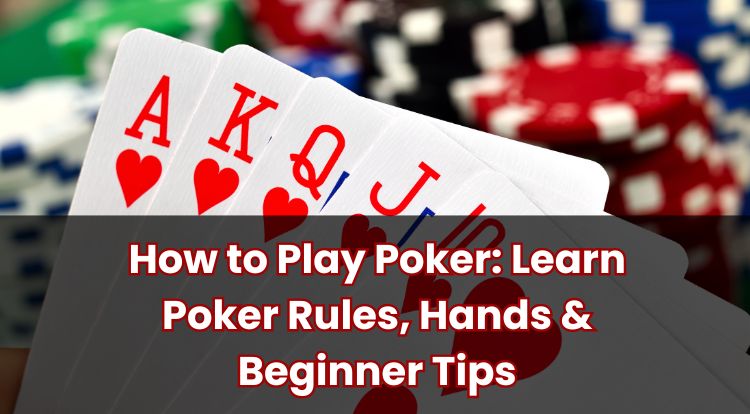What Does Check-Raise Mean In Poker?
Poker is a renowned and popular game of chance and strategy, with many different moves that can shake things up for those sitting around the table.
Some of the terminology can be confusing and somewhat daunting for both newcomers and frequent players alike, and in this blog we’re going to dissect one of these terms; a check-raise.
As you read through this blog, you’ll find out what a check-raise is and when you might consider using it.
What Is a Check-Raise In Poker?
A check-raise is a deceptive move used by many strategic players in order to potentially ‘trap’ opponents into raising the pot by initially faking a weaker hand. It’s often thought of as one of the more effective poker strategies, but only if executed correctly.
The check-raise is used as a strategy to try and maximise any potential winnings and make opponents uncertain about their hand. It might lead other players to fold their hands, giving the check-raiser the chance to win the pot without a showdown.
In order to check-raise, players should feel confident in their ability to read other players and bluff a weak hand; social and interpersonal skills can be beneficial to those looking to play poker well.
How To Check-Raise In Poker
A check-raise in poker involves a bit of planning, and it all begins with choosing the right position at the table. Ideally, you’ll want to be one of the earlier players to act in the round; this position allows you to check first without betting. Checking signals a pause in the action, leaving the betting open to those who follow.
Before you can execute a check-raise, patience is important. After you check, you’ll wait to see if another player decides to bet. This is a crucial moment, as it sets up the opportunity for your check-raise.
To try and make the check-raise effective, think about your cards and how they compare with what others might hold. Observing how your opponents play can give clues about their hands and help you plan your raise.
Choosing the right amount to raise is another key part of the strategy. A thoughtful raise can apply pressure, making other players reconsider their bets. However, it’s important that your raise aligns with the overall plan for your hand.
When it’s your turn again, announcing your raise can take others by surprise. The element of surprise is often at the heart of this tactical move. It can shift the dynamics of the game and prompt different strategies from your opponents.
Play Slots & Online Casino Games
When To Check-Raise In Poker?
Timing is important when considering a check-raise in poker. It’s about choosing the right moment to catch your opponents off guard.
A good time to check-raise may be when you feel confident about your hand; if you believe you hold a strong hand, checking first can be a way to let others build the pot for you.
You might also choose to check-raise if you want to bluff. By pretending your hand is weak, you may entice others to bet, then surprise them with a raise.
Reading your opponents is also key- if you notice a player who frequently bets after others check, setting up for a check-raise could be effective.
Finally, consider your position at the table. Being one of the last to act can provide useful information about the other players’ hands and strategies, potentially making a well-timed check-raise more impactful.
Check-Raise Poker Example
Imagine you’re in a game of poker, sitting with a strong pair of aces. The betting round starts, and it’s your turn. Instead of betting, you decide to check, passing the turn to the next player.
Another player decides to bet, putting some chips into the pot. This is what you’ve been waiting for. You now choose to raise, increasing the bet.
This move may take the others by surprise, as your initial check suggested you weren’t keen to bet. Now, with your raise, the pressure is on them to decide their next move.
This example shows how a check-raise can change the dynamics of a game. It cleverly combines patience with aggression, possibly catching opponents off guard.
The check-raise has the potential to make others question the strength of their hands and may lead them to rethink their strategy. It’s a tactic that, when used wisely, can be quite effective in poker.
**The information provided in this blog is intended for educational purposes and should not be construed as betting advice or a guarantee of success. Always gamble responsibly.
































































